Conference Participant Biographies
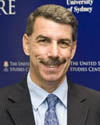 Mike Chinoy (Filmmaker): Mike Chinoy was CNN's Senior Asia Correspondent and served as a foreign correspondent for more than thirty years. After joining CNN at its London bureau in 1983, Chinoy served as Beijing Bureau Chief from 1987 to 1995. During that time he covered the 1989 events at Tiananmen Square, earning the CableACE, duPont and Peabody awards. He was also Hong Kong Bureau Chief for five years. His other awards include the Silver Medal from the New York Film Festival and Asian Television Awards for his reporting in Indonesia and Taiwan. Chinoy's published two books, China Live: People Power and the Television Revolution (1999) and Meltdown: The Inside Story of the North Korean Nuclear Crisis (2008). He taught at the USC Annenberg School of Communication and ran the School's Hong Kong summer program 2007-2009.
Mike Chinoy (Filmmaker): Mike Chinoy was CNN's Senior Asia Correspondent and served as a foreign correspondent for more than thirty years. After joining CNN at its London bureau in 1983, Chinoy served as Beijing Bureau Chief from 1987 to 1995. During that time he covered the 1989 events at Tiananmen Square, earning the CableACE, duPont and Peabody awards. He was also Hong Kong Bureau Chief for five years. His other awards include the Silver Medal from the New York Film Festival and Asian Television Awards for his reporting in Indonesia and Taiwan. Chinoy's published two books, China Live: People Power and the Television Revolution (1999) and Meltdown: The Inside Story of the North Korean Nuclear Crisis (2008). He taught at the USC Annenberg School of Communication and ran the School's Hong Kong summer program 2007-2009.
 Gen. Wesley K. Clark (ret.) (Panelist): Gen. Wesley K. Clark (ret.) is a Senior Fellow at the Burkle Center. During thirty-four years of service in the United States Army he rose to the rank of four-star general as NATO's Supreme Allied Commander, Europe. After his retirement in 2000, he became an investment banker, author, commentator, and businessman. In September 2003 he answered the call to stand as a Democratic candidate for President of the United States, winning the state of Oklahoma. The campaign launched him to national prominence before he returned to the private sector in February 2004. His books include Winning Modern Wars (Public Affairs, 2004);Waging Modern War: Bosnia, Kosovo, and the Future of Combat (Public Affairs, 2002); and A Time to Lead: For Duty, Honor and Country (Palgrave MacMillan, 2007). He received a BS from West Point and was a Rhodes Scholar at Oxford University.
Gen. Wesley K. Clark (ret.) (Panelist): Gen. Wesley K. Clark (ret.) is a Senior Fellow at the Burkle Center. During thirty-four years of service in the United States Army he rose to the rank of four-star general as NATO's Supreme Allied Commander, Europe. After his retirement in 2000, he became an investment banker, author, commentator, and businessman. In September 2003 he answered the call to stand as a Democratic candidate for President of the United States, winning the state of Oklahoma. The campaign launched him to national prominence before he returned to the private sector in February 2004. His books include Winning Modern Wars (Public Affairs, 2004);Waging Modern War: Bosnia, Kosovo, and the Future of Combat (Public Affairs, 2002); and A Time to Lead: For Duty, Honor and Country (Palgrave MacMillan, 2007). He received a BS from West Point and was a Rhodes Scholar at Oxford University.
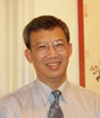 Chen Jian (Panelist): Professor Jian is the Michael J. Zak Chair of the History of US China Relations at Cornell University, where he serves as Director of the China and Asian-Pacific Studies Program and is a distinguished research scholar, writer and teacher. He also held the Philippe Roman Chair at the London School of Economics during the 2008-09 academic year, and is a Senior Fellow of LSE IDEAS. Chen received his M.A. from Fudan University and East China Normal University in Shanghai and his Ph.D. from Southern Illinois University. He is a member of the editorial board for The China Review and The Chinese Historical Review and is Associate Editor of The Journal of American-East Asian Relations. He is author of Mao's China and the Cold War and China's Road to the Korean War: the Making of the Sino-American Confrontation, which is regarded as a modern classic, and shared honors for the 2005 Emmy Award for Outstanding Achievement in News and Documentary Research for Declassified: Nixon in China.
Chen Jian (Panelist): Professor Jian is the Michael J. Zak Chair of the History of US China Relations at Cornell University, where he serves as Director of the China and Asian-Pacific Studies Program and is a distinguished research scholar, writer and teacher. He also held the Philippe Roman Chair at the London School of Economics during the 2008-09 academic year, and is a Senior Fellow of LSE IDEAS. Chen received his M.A. from Fudan University and East China Normal University in Shanghai and his Ph.D. from Southern Illinois University. He is a member of the editorial board for The China Review and The Chinese Historical Review and is Associate Editor of The Journal of American-East Asian Relations. He is author of Mao's China and the Cold War and China's Road to the Korean War: the Making of the Sino-American Confrontation, which is regarded as a modern classic, and shared honors for the 2005 Emmy Award for Outstanding Achievement in News and Documentary Research for Declassified: Nixon in China.
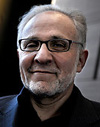 James Mann (Keynote Interviewer): James Mann is the Foreign Policy Institute Author-in-Residence for the Paul H. Nitze School of Advanced Studies at Johns Hopkins University. Previously, he was senior writer-in-residence at the Center for Strategic and International Studies; served as staff writer for the Los Angeles Times, including positions as Beijing bureau chief, national security correspondent and foreign affairs columnist; was staff writer for the New Haven Journal-Courier, The Washington Post, Philadelphia Inquirer and The Baltimore Sun; received the National Press Club Edwin M. Hood Award for diplomatic correspondence in 1993 and 1999, the Edward Weintal Prize for diplomatic reporting in 1999, the New York Public Library Helen Bernstein Award for best book of the year by a journalist in 2000 and the Asia-Pacific Award for best book about Asia in 2000; was finalist for the Lionel Gelber Prize for books on international relations in 2000 and the Arthur Ross Book Prize in 2005; is a member of the Council on Foreign Relations; formerly a guest scholar at the Woodrow Wilson International Center for Scholars and fellow of the American Academy in Berlin; serves as guest commentator for television and radio networks; B.A., sociology, Harvard University.
James Mann (Keynote Interviewer): James Mann is the Foreign Policy Institute Author-in-Residence for the Paul H. Nitze School of Advanced Studies at Johns Hopkins University. Previously, he was senior writer-in-residence at the Center for Strategic and International Studies; served as staff writer for the Los Angeles Times, including positions as Beijing bureau chief, national security correspondent and foreign affairs columnist; was staff writer for the New Haven Journal-Courier, The Washington Post, Philadelphia Inquirer and The Baltimore Sun; received the National Press Club Edwin M. Hood Award for diplomatic correspondence in 1993 and 1999, the Edward Weintal Prize for diplomatic reporting in 1999, the New York Public Library Helen Bernstein Award for best book of the year by a journalist in 2000 and the Asia-Pacific Award for best book about Asia in 2000; was finalist for the Lionel Gelber Prize for books on international relations in 2000 and the Arthur Ross Book Prize in 2005; is a member of the Council on Foreign Relations; formerly a guest scholar at the Woodrow Wilson International Center for Scholars and fellow of the American Academy in Berlin; serves as guest commentator for television and radio networks; B.A., sociology, Harvard University.
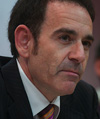 Timothy Naftali (Panelist): Timothy Naftali is a Senior Research Fellow at the New America Foundation, and the former director of the Richard Nixon Presidential Library and Museum, a part of the National Archives and Records Administration. Naftali was appointed director-designate of the Nixon Library in April 2006. He served as director of the Nixon Presidential Materials Staff at the National Archives from October 2006 until a federal Nixon Library was established within the system of presidential libraries on July 11, 2007. Before joining the National Archives, Naftali taught history at several universities, including the University of Virginia, where he also served as director of the Presidential Recordings Program at the Miller Center of Public Affairs. There he oversaw a team of researchers who transcribed and annotated meetings and telephone conversations secretly recorded by Presidents Roosevelt, Truman, Eisenhower, Kennedy, Johnson, and Nixon. Naftali is a prolific writer, and his work has appeared inThe New York Times, the Washington Post, Foreign Affairs, and other publications, and he has appeared on National Public Radio, the History Channel and C-SPAN. He is the author of four books, including Blind Spot: The Secret History of American Counterterrorism and, with Aleksander Fursenko, One Hell of A Gamble: Khrushchev, Castro, and Kennedy, 1958–1964. His second book with Fursenko, Khrushchev’s Cold War: The Inside Story of an American Adversary, received the Duke of Westminster’s Medal for Military Literature in June 2007. Dr. Naftali is currently writing a study of the Kennedy presidency for publication in 2013.
Timothy Naftali (Panelist): Timothy Naftali is a Senior Research Fellow at the New America Foundation, and the former director of the Richard Nixon Presidential Library and Museum, a part of the National Archives and Records Administration. Naftali was appointed director-designate of the Nixon Library in April 2006. He served as director of the Nixon Presidential Materials Staff at the National Archives from October 2006 until a federal Nixon Library was established within the system of presidential libraries on July 11, 2007. Before joining the National Archives, Naftali taught history at several universities, including the University of Virginia, where he also served as director of the Presidential Recordings Program at the Miller Center of Public Affairs. There he oversaw a team of researchers who transcribed and annotated meetings and telephone conversations secretly recorded by Presidents Roosevelt, Truman, Eisenhower, Kennedy, Johnson, and Nixon. Naftali is a prolific writer, and his work has appeared inThe New York Times, the Washington Post, Foreign Affairs, and other publications, and he has appeared on National Public Radio, the History Channel and C-SPAN. He is the author of four books, including Blind Spot: The Secret History of American Counterterrorism and, with Aleksander Fursenko, One Hell of A Gamble: Khrushchev, Castro, and Kennedy, 1958–1964. His second book with Fursenko, Khrushchev’s Cold War: The Inside Story of an American Adversary, received the Duke of Westminster’s Medal for Military Literature in June 2007. Dr. Naftali is currently writing a study of the Kennedy presidency for publication in 2013.
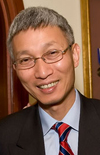 Minxin Pei (Panelist): Minxin Pei is the Tom and Margot Pritzker '72 Professor of Government and the Director of the Keck Center for International and Strategic Studies at Claremont McKenna College. His research focuses on democratization in developing countries, economic reform and governance in China, and U.S.–China relations. He is the author of From Reform to Revolution: The Demise of Communism in China and the Soviet Union (Harvard University Press, 1994) and China’s Trapped Transition: The Limits of Developmental Autocracy (Harvard University Press, 2006). Pei’s research has been published in Foreign Policy, Foreign Affairs, the National Interest, Modern China, China Quarterly, Journal of Democracy, and many edited books. Pei is a frequent commentator on CNN and National Public Radio; his op-eds have appeared in the New York Times, Financial Times, Washington Post, Newsweek International, and the International Herald Tribune. Pei received his Ph.D. in political science from Harvard University.
Minxin Pei (Panelist): Minxin Pei is the Tom and Margot Pritzker '72 Professor of Government and the Director of the Keck Center for International and Strategic Studies at Claremont McKenna College. His research focuses on democratization in developing countries, economic reform and governance in China, and U.S.–China relations. He is the author of From Reform to Revolution: The Demise of Communism in China and the Soviet Union (Harvard University Press, 1994) and China’s Trapped Transition: The Limits of Developmental Autocracy (Harvard University Press, 2006). Pei’s research has been published in Foreign Policy, Foreign Affairs, the National Interest, Modern China, China Quarterly, Journal of Democracy, and many edited books. Pei is a frequent commentator on CNN and National Public Radio; his op-eds have appeared in the New York Times, Financial Times, Washington Post, Newsweek International, and the International Herald Tribune. Pei received his Ph.D. in political science from Harvard University.
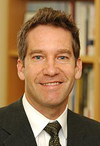 Kal Raustiala (Moderator): Kal Raustiala teaches courses in international law and international relations. He holds a joint appointment between the UCLA Law School and the UCLA International Institute, where he teaches in the Program on Global Studies, a multidisciplinary undergraduate program on globalization. In December 2006, he was appointed director of the UCLA Ronald W. Burkle Center for International Relations. The Burkle Center is UCLA's primary academic unit that fosters interdisciplinary research and policy-oriented teaching on the role of the United States in global cooperation and conflict, and military, political, social and economic affairs. In addition to UCLA, Professor Raustiala has been a visiting professor at Harvard Law School, Columbia Law School, the Princeton Politics Department, and the University of Chicago Law School. He was a fellow in the Foreign Policy Studies Program at The Brookings Institution, Washington, D.C., a Peccei Scholar at the International Institute for Applied Systems in Vienna, Austria, and a fellow in the Program on Law and Public Affairs at the Woodrow Wilson School at Princeton. A member of the American Society of International Law and the Council on Foreign Relations, he is on the editorial boards of International Organization and the American Journal of International Law and has served as a consultant on legal matters to numerous international organizations.
Kal Raustiala (Moderator): Kal Raustiala teaches courses in international law and international relations. He holds a joint appointment between the UCLA Law School and the UCLA International Institute, where he teaches in the Program on Global Studies, a multidisciplinary undergraduate program on globalization. In December 2006, he was appointed director of the UCLA Ronald W. Burkle Center for International Relations. The Burkle Center is UCLA's primary academic unit that fosters interdisciplinary research and policy-oriented teaching on the role of the United States in global cooperation and conflict, and military, political, social and economic affairs. In addition to UCLA, Professor Raustiala has been a visiting professor at Harvard Law School, Columbia Law School, the Princeton Politics Department, and the University of Chicago Law School. He was a fellow in the Foreign Policy Studies Program at The Brookings Institution, Washington, D.C., a Peccei Scholar at the International Institute for Applied Systems in Vienna, Austria, and a fellow in the Program on Law and Public Affairs at the Woodrow Wilson School at Princeton. A member of the American Society of International Law and the Council on Foreign Relations, he is on the editorial boards of International Organization and the American Journal of International Law and has served as a consultant on legal matters to numerous international organizations.
 Susan Shirk (Panelist): Susan Shirk is director of the University of California system-wide Institute on Global Conflict and Cooperation and Ho Miu Lam professor of China and Pacific Relations at IR/PS. In 1993, she founded and continues to lead the Northeast Asia Cooperation Dialogue (NEACD), an unofficial forum that discusses security issues among defense and foreign ministry officials and academics from the United States, Japan, China, Russia, and the Koreas. As an expert on Chinese politics, Shirk served as Deputy Assistant Secretary of State in the Bureau of East Asia and Pacific Affairs, with responsibility for China, Taiwan, Hong Kong and Mongolia from 1997-2000. She is currently a professor at the Graduate School of International Relations and Pacific Studies at the UCSD. She received her BA in political science from Mount Holyoke College, her MA in Asian studies at UC Berkeley, and her PhD in political science from the Massachusetts Institute of Technology.
Susan Shirk (Panelist): Susan Shirk is director of the University of California system-wide Institute on Global Conflict and Cooperation and Ho Miu Lam professor of China and Pacific Relations at IR/PS. In 1993, she founded and continues to lead the Northeast Asia Cooperation Dialogue (NEACD), an unofficial forum that discusses security issues among defense and foreign ministry officials and academics from the United States, Japan, China, Russia, and the Koreas. As an expert on Chinese politics, Shirk served as Deputy Assistant Secretary of State in the Bureau of East Asia and Pacific Affairs, with responsibility for China, Taiwan, Hong Kong and Mongolia from 1997-2000. She is currently a professor at the Graduate School of International Relations and Pacific Studies at the UCSD. She received her BA in political science from Mount Holyoke College, her MA in Asian studies at UC Berkeley, and her PhD in political science from the Massachusetts Institute of Technology.
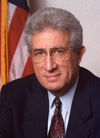 Richard Solomon (Keynote Speaker): Richard H. Solomon has been president of the United States Institute of Peace since 1993 and has overseen its growth into a center of international conflict management analysis and applied programs. Prior to this assignment, Solomon was assistant secretary of state for East Asian and Pacific affairs from 1989 to 1992. He negotiated the Cambodia peace treaty, the first United Nations "Permanent Five" peacemaking agreement; had a leading role in the dialogue on nuclear issues between the United States and South and North Korea; helped establish the Asia-Pacific Economic Cooperation initiative; and led U.S. negotiations with Japan, Mongolia and Vietnam on important bilateral matters. In 1992-93, Solomon served as U.S. ambassador to the Philippines. He coordinated the closure of the U.S. naval bases and developed a new framework for bilateral and regional security cooperation. Solomon previously served as director of policy planning at the Department of State and as a senior staff member of the National Security Council.
Richard Solomon (Keynote Speaker): Richard H. Solomon has been president of the United States Institute of Peace since 1993 and has overseen its growth into a center of international conflict management analysis and applied programs. Prior to this assignment, Solomon was assistant secretary of state for East Asian and Pacific affairs from 1989 to 1992. He negotiated the Cambodia peace treaty, the first United Nations "Permanent Five" peacemaking agreement; had a leading role in the dialogue on nuclear issues between the United States and South and North Korea; helped establish the Asia-Pacific Economic Cooperation initiative; and led U.S. negotiations with Japan, Mongolia and Vietnam on important bilateral matters. In 1992-93, Solomon served as U.S. ambassador to the Philippines. He coordinated the closure of the U.S. naval bases and developed a new framework for bilateral and regional security cooperation. Solomon previously served as director of policy planning at the Department of State and as a senior staff member of the National Security Council.
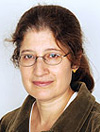 Julia C. Strauss (Panelist) is Senior Lecturer in the Department of Political and International Studies at the University of London's School of Oriental and African Studies (SOAS), and is a current Visiting Researcher at the UCLA Asia Institute. She was also the Editor of The China Quarterly from 2002 to 2011. Her research interests span both sides of the Taiwan Straits and are focused on state building and institution building, governance, the environment, and China-Africa relations. Her publications include the edited volumes China and Africa: Emerging Patterns in Globalization and Development (CUP 2009), The History of the People’s Republic of China (CUP, 2006), and the monograph Strong Institutions in Weak Polities: State Building in Republican China, 1927-1940 (Clarendon, 1998). Articles include “Forestry Reform and the Transformation of State Capacity in fin de siècle China” (Journal of Asian Studies, 68:4), and “Paternalist Terror: The Campaign to Suppress Counterrevolutionaries and Regime Consolidation in the People’s Republic of China, 1950-53” (Comparative Studies in Society and History). She is currently working on a monograph with the working title “Security, Land and Rice: Trajectories of Regime Consolidation in China and Taiwan, 1949-1955.”
Julia C. Strauss (Panelist) is Senior Lecturer in the Department of Political and International Studies at the University of London's School of Oriental and African Studies (SOAS), and is a current Visiting Researcher at the UCLA Asia Institute. She was also the Editor of The China Quarterly from 2002 to 2011. Her research interests span both sides of the Taiwan Straits and are focused on state building and institution building, governance, the environment, and China-Africa relations. Her publications include the edited volumes China and Africa: Emerging Patterns in Globalization and Development (CUP 2009), The History of the People’s Republic of China (CUP, 2006), and the monograph Strong Institutions in Weak Polities: State Building in Republican China, 1927-1940 (Clarendon, 1998). Articles include “Forestry Reform and the Transformation of State Capacity in fin de siècle China” (Journal of Asian Studies, 68:4), and “Paternalist Terror: The Campaign to Suppress Counterrevolutionaries and Regime Consolidation in the People’s Republic of China, 1950-53” (Comparative Studies in Society and History). She is currently working on a monograph with the working title “Security, Land and Rice: Trajectories of Regime Consolidation in China and Taiwan, 1949-1955.”
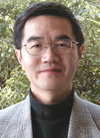 Yunxiang Yan (Moderator): Yunxiang Yan is professor of anthropology and director of the Center for Chinese Studies, University of California, Los Angeles. He earned a BA and MA in Chinese literature at Peking University, China, and a Ph.D. in anthropology at Harvard University. He is the author of The Flow of Gifts: Reciprocity and Social Networks in a Chinese Village (Stanford University Press, 1996) and Private Life under Socialism: Love, Intimacy, and Family Change in a Chinese Village, 1949-1999 (Stanford University Press, 2003). His research interests include family and kinship, social change, social inequality and hierarchy, mass consumption and consumerism, and the impact of cultural globalization.
Yunxiang Yan (Moderator): Yunxiang Yan is professor of anthropology and director of the Center for Chinese Studies, University of California, Los Angeles. He earned a BA and MA in Chinese literature at Peking University, China, and a Ph.D. in anthropology at Harvard University. He is the author of The Flow of Gifts: Reciprocity and Social Networks in a Chinese Village (Stanford University Press, 1996) and Private Life under Socialism: Love, Intimacy, and Family Change in a Chinese Village, 1949-1999 (Stanford University Press, 2003). His research interests include family and kinship, social change, social inequality and hierarchy, mass consumption and consumerism, and the impact of cultural globalization.
[Back to Top]